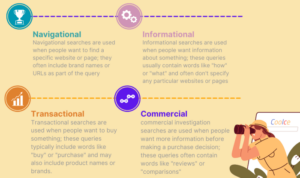Kicking off with Personalizing Customer Experiences, this topic dives into the importance of creating unique connections with customers. From tailored marketing strategies to personalized support, the key to success lies in making each interaction memorable and impactful.
Importance of Personalizing Customer Experiences

Personalizing customer experiences is not just a trend, it’s a necessity in today’s competitive market. By tailoring interactions to meet the specific needs and preferences of individual customers, businesses can create a deeper connection and foster loyalty.
Enhanced Customer Engagement
Personalization allows businesses to engage with customers on a more personal level, making them feel valued and understood. For example, Netflix’s recommendation algorithm suggests movies and shows based on a user’s viewing history, enhancing their overall experience.
Increased Customer Loyalty
When customers feel like a business understands them and anticipates their needs, they are more likely to remain loyal. Starbucks’ loyalty program, which offers personalized rewards and discounts based on purchase history, is a prime example of how personalization can increase customer retention.
Improved Customer Satisfaction
Personalized experiences show that a business cares about its customers as individuals, leading to higher satisfaction levels. Amazon’s personalized product recommendations and targeted marketing campaigns are known for enhancing customer satisfaction and driving repeat purchases.
Boosted Revenue and Sales
By personalizing customer experiences, businesses can drive more targeted marketing efforts, resulting in increased sales and revenue. A study by Boston Consulting Group found that personalization can lead to a revenue increase of 6-10% in the retail sector alone.
Strategies for Personalizing Customer Experiences
To create personalized customer experiences, businesses can utilize various strategies to collect customer data, leverage AI and machine learning technologies, and learn from successful examples in the industry.
Collecting Customer Data
- Implementing customer surveys and feedback forms on websites
- Utilizing customer relationship management (CRM) software to track interactions
- Monitoring social media platforms for customer preferences and behaviors
Role of AI and Machine Learning
- AI algorithms can analyze large amounts of data to identify patterns and trends
- Machine learning models can predict customer behavior based on past interactions
- Automated chatbots can provide personalized responses in real-time
Examples of Companies Using Personalized Marketing, Personalizing Customer Experiences
- Amazon: Recommends products based on past purchases and browsing history
- Netflix: Suggests movies and shows tailored to individual viewing habits
- Spotify: Creates personalized playlists based on listening preferences
Implementing Personalization in E-commerce

Implementing personalization in e-commerce is crucial for providing a tailored shopping experience to customers. By customizing interactions throughout the buyer’s journey, businesses can increase engagement and drive sales.
Using Recommendation Engines and Personalized Product Suggestions
Recommendation engines play a vital role in personalizing customer experiences in e-commerce. These AI-powered tools analyze user behavior and preferences to suggest products that are relevant to each individual. By leveraging recommendation engines, businesses can enhance product discovery and increase cross-selling opportunities.
- Utilize collaborative filtering algorithms to recommend products based on user behavior and purchase history.
- Implement content-based filtering to suggest products that are similar to ones previously viewed or purchased.
- Leverage machine learning techniques to continuously improve recommendations based on user feedback and interactions.
Personalized product suggestions can significantly impact conversion rates and customer satisfaction by making the shopping experience more convenient and enjoyable.
Tips for Creating Personalized Shopping Experiences Online
Creating personalized shopping experiences online requires a combination of data-driven insights and customer-centric strategies. Here are some tips to help e-commerce businesses succeed in personalization:
- Collect and analyze customer data to understand preferences, browsing behavior, and purchase history.
- Segment your audience based on demographics, interests, and shopping habits to deliver targeted offers and promotions.
- Use dynamic content to display personalized product recommendations, tailored messaging, and relevant promotions.
- Implement A/B testing to optimize personalized experiences and measure the impact on key performance metrics.
Personalizing the shopping experience can build customer loyalty, increase repeat purchases, and drive long-term growth for e-commerce businesses.
Personalizing Customer Support
Customer support is a crucial aspect of any business, and personalizing these interactions can have a significant impact on customer satisfaction and loyalty. By tailoring support services to the individual needs and preferences of customers, companies can create more meaningful and engaging experiences.
Benefits of Personalizing Customer Support Interactions
- Increased customer satisfaction: By addressing customers by name and understanding their specific issues, personalized support interactions can make customers feel valued and cared for.
- Improved customer loyalty: When customers receive personalized support that caters to their unique needs, they are more likely to continue doing business with the company.
- Enhanced brand perception: Providing personalized support shows customers that the company values their individuality and is willing to go the extra mile to meet their needs.
Examples of Companies Offering Personalized Customer Support Services
- Amazon: The e-commerce giant uses AI-powered algorithms to recommend products and provide personalized customer support based on customers’ browsing and purchasing history.
- Zappos: The online shoe retailer is known for its exceptional customer service, which includes personalized interactions with representatives who go above and beyond to meet customers’ needs.
- Netflix: The streaming service uses personalized recommendations and customer support to help users find content they will enjoy, enhancing their overall user experience.
AI in Enhancing Personalized Customer Support Experiences
AI technology plays a crucial role in enhancing personalized customer support experiences by enabling companies to analyze customer data, predict needs, and automate support processes. By leveraging AI-powered chatbots, companies can provide real-time assistance to customers, resolve issues efficiently, and deliver personalized recommendations based on customer preferences and behavior.





